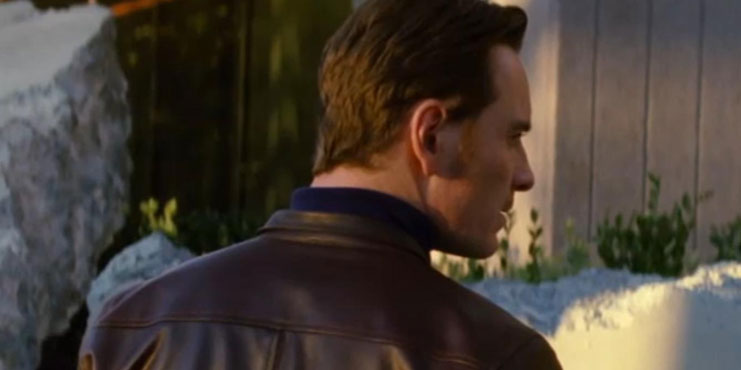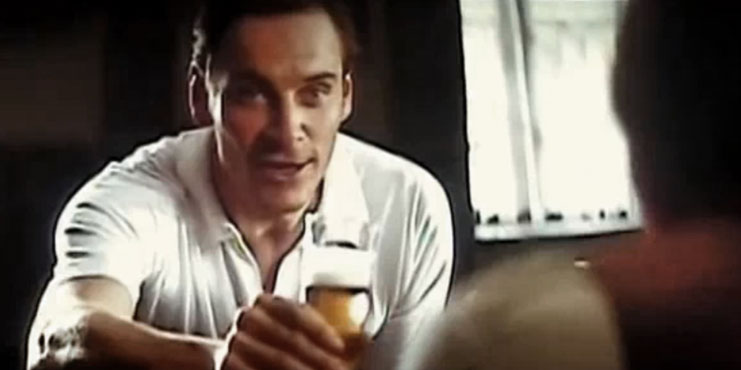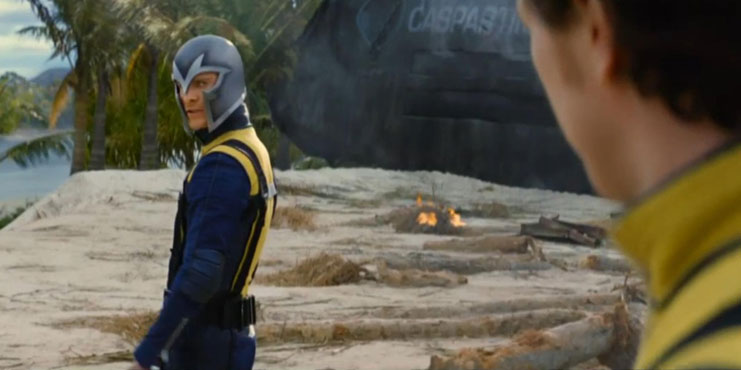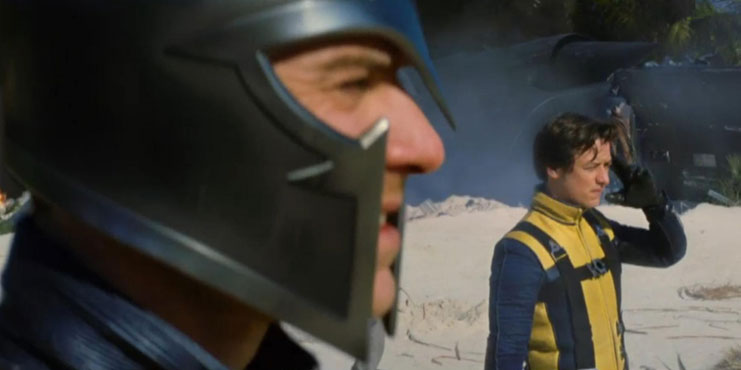
|

|

|

|

|

|

|

|

|

|

|

|


"X-Men: First Class" – Best Superhero Film Ever?
The X-Men film franchise has had a very interesting history. Originating at the start of the millennium, director Bryan Singer's X-Men received generally positive reviews, with critics praising the movie for tackling the issues of discrimination, empowerment, and self-awareness. The saga continued with Singer returning to the helm with X2: X-Men United, and the film was one of the select few sequels deemed better than the original. Rather than remaining on board for the entire trilogy, Singer left the franchise to direct the critically praised, yet commercially disappointing, Superman Returns.
In Singer's absence, 20th Century Fox and Marvel made the inexplicable and eternally criticized decision to hire Rush Hour director, Brett Ratner, for the third installment of X-Men. Needless to say, X3: The Last Stand was a critical failure, but ended up grossing $459 million worldwide – which isn't that much considering its budget, $210 million, made it the most expensive film ever made at the time of its release. What really boggles my mind is why the studios settled on Ratner when there were so many other more qualified (and interested) candidates, such as Joss Whedon (my hero!), Darren Aronofsky, and Zack Snyder!
According to the film's wiki, Matthew Vaughn, the director of X-Men: First Class, was originally hired to direct the film, but left early in the pre-production phase. If Vaughn (or Singer) had chosen to stay, there's no question in my mind that the franchise would have remained critically intact and beloved – but at the same time, it would have diminished the glorious redemption that is X-Men: First Class. So, I guess the moral of the story is that you have to sit through a few bad apples (X3: The Last Stand, X-Men Origins: Wolverine) before you get to the good stuff. And as bleak as that sounds, trust me, X-Men: First Class is worth the wait.
The story starts off in World War II, an almost shot-by-shot reenactment of the original X-Men opening sequence – a young Erik Lensherr, when separated from his mother in a Nazi concentration camp, bends a metal gate into a steely pulp. One of the Nazi scientists, Dr. Schmidt (Kevin Bacon) witnesses this feat and tries to force young Erik to move a metal coin with his mind. When Erik tries and fails, Schmidt kills his mother and we get a first hand glimpse into the convoluted, hate-riddled pathos of Magneto’s mind. The rest of the story takes place in the 60’s during the Cuban Missile Crisis, where Charles Xavier (James McAvoy), a telepath and expert in mutation, tries to find more people with special abilities.
In a largely irrelevant role, Moriah MacTaggert (Rose Byrne) helps align the CIA with Xavier's mission in finding all these mutants, while an older Erik Lensherr (Michael Fassbender) hunts down Nazi war criminals, all in the hopes of eventually finding and killing Dr. Schmidt.

Without giving away too much of the story, Dr. Schmidt is now Sebastian Shaw, a mutant capable of absorbing energy to make himself more powerful, and Shaw is determined to bring Russia and The United States to the brink of a nuclear war. As for Xavier, he’s brought mutants, such as Banshee (a mutant with a truly powerful scream) and Havok, who apparently has the ability to shoot wildly uncontrolled bolts of weird energy out of his chest. Shaw also has a few like-minded mutants up his sleeve as well, including the seductive Emma Frost (January Jones), who can basically rival Xavier's telepathic abilities, and Azazel – a teleporting mutant reminiscent of X2’s Nightcrawler.
The brilliant Xavier and the stoic Lensherr soon cross paths and join forces against Shaw. Xavier believes in the possibility of Shaw's redemption, while Lensherr desperately craves revenge for his mother’s murder. In one of the film’s more memorable quotes, Xavier warns Lensherr, stating that the murder won’t give him peace, but Lensherr coldly replies that "peace was never an option." Eventually, their different approaches lead to growing friction between the two, with the film's conclusion splitting the mutants with disastrous results.


Part of this film's genius lies with the creative decision to include actual historical events into the storyline, a feat which adds a much-needed, additional air of credibility to a film that includes a mutant that can fly by screaming loudly. At the same time, I'm worried that bringing the Cuban Missile Crisis into the mix might alienate some viewers who are unfamiliar with the event. I'm all for smart films, but this is a comic-book adaptation – and they have a history of attracting the not-so-bright, popcorn-munching, action-junkie masses. And if they can’t understand the film, then that leads to some pretty negative word-of-mouth advertising, which might deter movie-goers from experiencing one of the best superhero films in recent memory.
I also noticed that this X-Men film has a sense of humor, much unlike its predecessors. Banshee (Caleb Landry Jones), in particular, was the source of much comedic relief, as was Xavier with his surprisingly effortless charm. However, the most laugh-worthy scene of the film came to us, courtesy of Hugh Jackman, during a brief cameo appearance by Wolverine. Additionally, a fair amount of the humor is just subtle enough that you might miss it – there are a few pointed references here and there to the comics and the previous films, which brings to mind an instance where Xavier jokingly dismisses going bald, which eventually not only occurs, but ends up being an unmistakable aspect of his iconic appearance.
The acting in this film is good, occasionally great, but mostly good. Fortunately, it never really dips into subpar territory. The film's two main leads, James McAvoy and Michael Fassbender, are brilliant actors. I'm already a huge fan of McAvoy's work, but I was less familiar with Fassbender, who surprised me with his deliciously brooding performance. Jennifer Lawrence, who played a younger Mystique, underwhelmed me. After getting nominated for a truly magnificent performance in Winter’s Bone at the Oscars, I expected something memorable from her, but it never happened. Perhaps she pulled a Natalie Portman and chose X-Men: First Class as a way to unwind from her grueling performance in Winter's Bone, much like Portman chose Thor after Black Swan.
January Jones was sexy and delightful as the mind-twisting temptress, Emma Frost, and Kevin Bacon was just plain – wow. He needs to play more out-of-the-box roles like this more often, because I can't honestly remember the last time I looked forward to seeing anything Bacon's done. But with a devilish glint in his eyes and more malice than Voldemort and Hans Gruber combined, Bacon steals every scene he's in.
The script is superb, but it's the beyond brilliant direction that takes this film to another level. Director Matthew Vaughn, who worked as a producer on several Guy Ritchie films before making his directorial debut on Layer Cake, has a distinct yet indefinable style, which allows him to effortlessly contemporize a period piece. Vaughn might not be a recognizable name, but Layer Cake is heralded as the film that propelled Daniel Craig to Bond stardom. After Layer Cake, Vaughn tackled a chunk of Neil Gaiman awesomeness with 2007's Stardust. Just last year, Vaughn blew me out of the water with the gloriously violent cinematic gem, Kick-Ass. So when I heard that Vaughn was going to direct an X-Men film, I had little doubt that the movie would turn out poorly – and I was right. Perfect character development, perfect plot progression, magnificent scoring, brilliant art direction and costume design – I could go on and on.
Ultimately, the only comic-book adaptation that can hold a candle to this one is The Dark Knight, and that’s high praise coming from me. I give X-Men: First Class the rare score of
10/10.
Original Source is here
